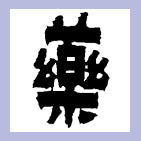Traditional Chinese Medicine (TCM) Approach to Stones: Theory, Treatment, and Herbal Recommendations
I. Understanding Stones in TCM Theory
In Traditional Chinese Medicine, stones are considered pathological products formed by the accumulation and condensation of damp-heat, phlegm, and blood stasis in the body. They are often secondary to underlying imbalances in organ functions, particularly those of the liver, gallbladder, kidneys, bladder, and stomach.
Etiology and Pathogenesis:
- Dietary Factors: Overconsumption of spicy, greasy, or alcoholic foods can impair spleen and stomach function, leading to the formation of damp-heat. This damp-heat can then accumulate in the gallbladder or lower abdomen, contributing to the development of gallstones or kidney/bladder stones.
- Emotional Stress: Emotional imbalances, such as prolonged anger or depression, can lead to liver qi stagnation. This stagnation can impair bile excretion and promote the formation of stones.
- Medication Misuse: Long-term use of certain medications, such as alkaline drugs, sulfonamides, or calcium supplements, can disrupt organ function and contribute to stone formation.
- Parasitic Infections: Parasites, such as roundworms, can act as niduses for stone formation, particularly in the biliary tract.
Clinical Manifestations:
The symptoms of stones vary depending on their location, size, and shape. Common symptoms include:
- Pain: Stones can obstruct the flow of qi and blood, leading to localized pain, such as distending pain in the hypochondriac region in the case of gallstones, orlow back pain in the case of kidney stones.
- Digestive Issues: Stones in the gallbladder or stomach can impair digestive function, leading to symptoms such as nausea, vomiting, and aversion to greasy foods.
- Urinary Symptoms: Kidney or bladder stones can cause urinary frequency, urgency, dysuria, and hematuria.
II. TCM Treatment Modalities
TCM offers a variety of treatment approaches for stones, tailored to the individual's constitution and the specific nature of the stones.
1. Herbal Medicine:
TCM herbal formulas are designed to address the underlying imbalances that contribute to stone formation. Commonly used herbs include:
- Jin Qian Cao (Lysimachia christinae): Known for its ability to clear heat, promote diuresis, and expel stones.
- Che Qian Zi (Plantago asiatica): Effective in clearing heat, promoting diuresis, and alleviating edema.
- Hai Jin Sha (Lygodium japonicum): Helps to clear heat, promote diuresis, and dissolve stones.
- Ji Nei Jin (Gallus gallus domesticus): Aids in digestion and promotes the expulsion of stones.
Recommended Herbal Formulas:
-
Fu Fang Jin Qian Cao Ke Li (Compound Lysimachia christinae Granules): A classic formula for the treatment of urinary stones, with actions to clear heat, promote diuresis, and expel stones.

-
Niao Shi Tong Wan (Urinary Stone-Expelling Pill): Effective in promoting diuresis, reducing edema, and aiding in the expulsion of stones.

-
Shen Shi Tong Ke Li (Kidney Stone-Expelling Granules): Designed to clear heat, promote diuresis, and alleviate pain associated with kidney stones.

-
Pai Shi Ke Li (Stone-Expelling Granules): A general formula for the expulsion of stones, with actions to promote diuresis and clear heat.

-
Dan Shi Tong Jiao Nang (Gallstone-Expelling Capsules): Specifically formulated for gallstones, with actions to clear heat, promote diuresis, and alleviate pain.

2. Acupuncture:
Acupuncture can be used to regulate qi and blood flow, promote the expulsion of stones, and alleviate pain. Commonly used acupuncture points include:
- Zu San Li (ST36): Strengthens the spleen and stomach, promotes digestion, and aids in the expulsion of stones.
- San Yin Jiao (SP6): Regulates the liver, spleen, and kidneys, and promotes the smooth flow of qi and blood.
- Pang Guang Shu (BL28): Located at the level of the second lumbar vertebra, this point is effective in promoting urinary function and aiding in the expulsion of stones.
3. Dietary Therapy:
Dietary adjustments play a crucial role in the prevention and treatment of stones. Patients are advised to:
- Drink plenty of water: Aim for a daily intake of 2000-3000 ml to promote diuresis and dilute urine.
- Avoid high-calcium and high-oxalate foods: Such as dairy products, spinach, tofu, and chocolate.
- Consume a balanced diet: Incorporate plenty of fruits and vegetables, lean proteins, and whole grains.
III. Precautions and Considerations
- Individualized Treatment: TCM treatment for stones should be tailored to the individual's constitution, the specific nature of the stones, and any underlying health conditions.
- Lifestyle Adjustments: In addition to dietary modifications, patients are advised to engage in regular physical activity, manage stress, and avoid excessive alcohol consumption.
- Seek Professional Guidance: It is important to consult with a qualified TCM practitioner for proper diagnosis, treatment planning, and monitoring of progress.
In conclusion, TCM offers a comprehensive and individualized approach to the treatment of stones, addressing both the underlying imbalances and the symptoms associated with stone formation. By combining herbal medicine, acupuncture, dietary therapy, and lifestyle adjustments, TCM can effectively promote the expulsion of stones and prevent their recurrence.
